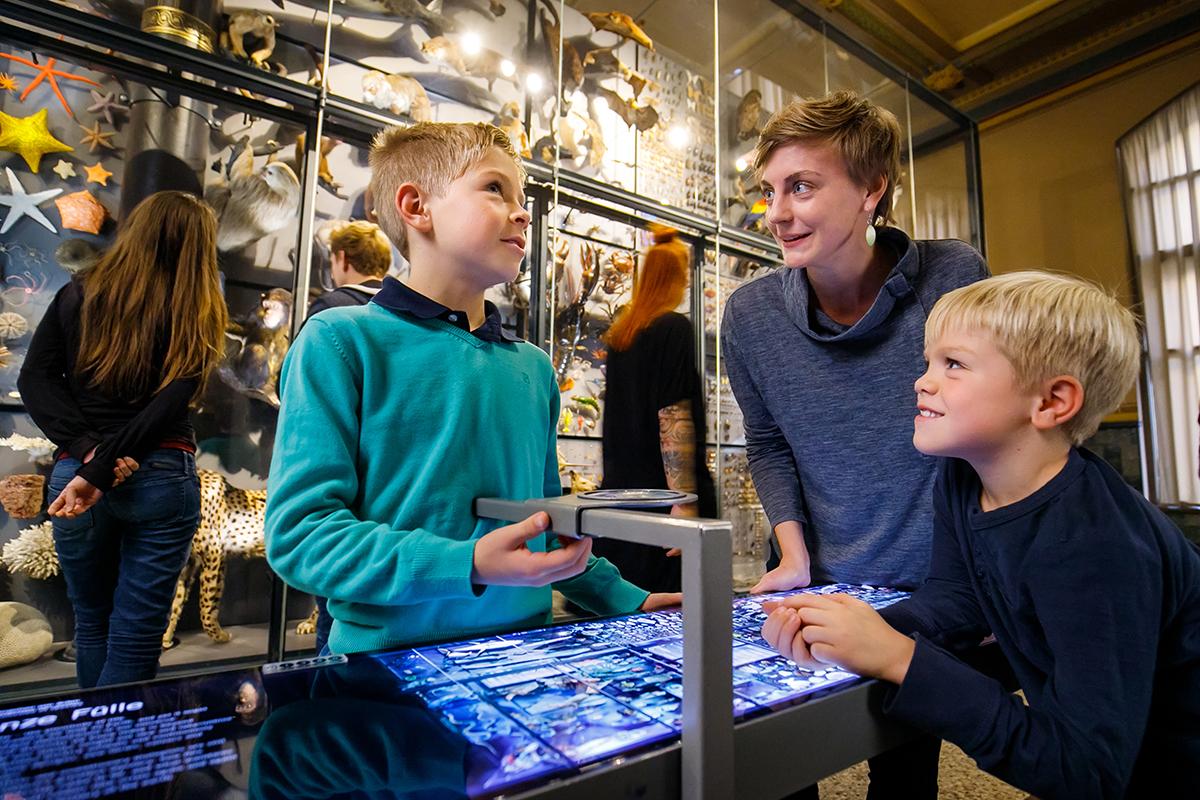Special opening hours: On 24, 25. & 31.12.19 the exhibition is close. On 26.12.19 & 01.01.20 the museum is open from 10:00 - 18:00 o'clock.
Family tours
During this guided tour, visitors get to know the highlights of the exhibitions, e.g. the original skeleton of a Tyrannosaurus rex, the archaeopteryx, the polar bear Knut and the wall of biological diversity.
- Sat & Sun, 12:30 & 14:00 o'clock (21. & 22.; 28. & 29.12.19 sowie 04. & 05.01.20)
- 4,00 € / reduced rate 2,00 € (plus admission) for 45 min
- Tickets directly at the box office, limited number of seats, pre-registration unfortunately not possible
Bye, bye Tristan Otto!
For four years Tristan Otto was enthusiastic in the Museum für Naturkunde Berlin. In February 2020 the skeleton of Tyrannosaurus rex moves on to the Danish State Natural History Museum in Copenhagen. Young and old Tristan fans should use their last holidays to say good bye to their fossil bones. The good news: In about two years T. rex Tristan Otto will return to Berlin.
Live digitisation in the exhibition
Thanks to the latest possibilities of digitalization, a few clicks will be enough in the future to recognize every single hair of a bee. This is made possible by the new, world's first 3D insect scanner. The "Darmstädter Insektenscanner" is the only scanner so far that can digitize insects in 3D. The Museum für Naturkunde Berlin digitizes its research collections in order to make them available worldwide around the clock. The entire collection of bees, wasps and ants is currently being processed and catalogued in the exhibition area, giving visitors a direct insight into the collection work at the Museum für Naturkunde Berlin.
- Tue - Sun 11:00 -16:00 o'clock
Humboldt intervention in the historic Mineral Hall
As a global research infrastructure, the research collection of the Museum für Naturkunde Berlin is a unique scientific and cultural treasure trove of knowledge that is researched by its own and international experts and made accessible worldwide. These include the collections that Alexander von Humboldt has collected on his travels or received through a global network. More than 1100 objects, primarily minerals and rocks, were brought to the museum by the researcher. To celebrate its 250th birthday, the Museum für Naturkunde Berlin is publishing an extensive, richly illustrated work presenting these minerals and rocks. Accompanying this, a "Humboldt Intervention" in the historic Mineral Hall shows selected original objects.
